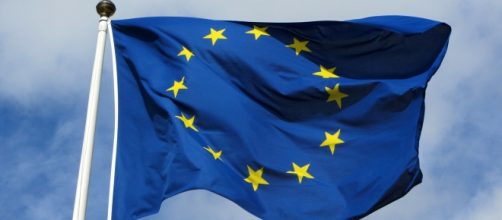With all this talk of lost sovereignty, a fascist Brussels, and the tens of thousands of illegal immigrants entering the country every year, you’d be forgiven for wondering why we decided to join in the first place. What so often gets overlooked is not just that we wanted to join, but that we needed to join, and it was the British public that voted for it.
History of the EU
The European Union was officially enacted in 1993, under the Maastricht Treaty, but had effectively been in existence since 1950, with the formation of the European Coal and Steel Community (ECSC).
The goal of forming a more united Europe was seen as a preventative measure against future rises of nationalism that had devastated the continent in the first half of the century. The UK, with its GDP having grown during World War 2, felt a closer union with Europe would weaken its economic strength and so refused to join. During this time, Britain held trade agreements primarily with its Commonwealth under the European Free Trade Association (EFTA). Yet, with major political changes happening, such as our decolonisation of Africa and India winning its independence, this trade pact became increasingly insufficient. Between 1950 and 1957, when the Treaty of Rome was signed, adding the European Atomic Energy Community (EURATOM) and the European Economic Community (EEC) to the European Communities, the UK GDP difference relative to Europe would fall by 13%.
Sovereignty and the need to join
The argument over sovereignty we are hearing today is not a new one. From the word go there have been objectors within the UK to forming a closer union with Europe, and indeed, any other international power that devolves power from the national government, such as the United Nations and NATO. Even Winston Churchill is famously quoted as saying “We are with Europe, but not of it” when speaking of a “United States of Europe” that Britain would partner, but not be directly involved in. Following years of a Tory government ridiculing the early European Communities, UK GDP continued to fall and the economy continued to struggle. At last, in 1961 when GDP difference between the UK and Europe was at a low of 10%, Prime Minister Harold Macmillan approached the continent about at last joining the European Community.
In 1963, French President Charles de Gaulle vetoed our membership. Over the next decade, as confidence was lost in the EFTA in favour of trade with other developed nations, Britain would face further rapid economic decline.
Fortunately for our rapidly declining GDP, Charles De Gaulle resigned the Presidency in 1969, at which time the UK was encouraged to file for EEC membership immediately. With UK GDP now 6% less than Europe, public opinion toward a closer union with Europe had increased substantially. Whilst the UK officially joined the EEC in 1973, the old arguments over sovereignty remained. As part of Labour’s 1974 election campaign, it promised a renegotiation of EEC membership, followed by a referendum by public vote over whether or not the UK would remain a part of the European Economic Community.
In 1975, two-thirds of the voters voted yes.
Many ‘Brexit’ supporters like to call upon the 1950's as Britain’s golden age; before we sacrificed our sovereignty for a closer union with Europe. Yet this is a myth. The UK, with the British Empire on the verge of collapse, was at the beginning of a rapid economical descent. Europe was not only our salvation, but UK GDP has remained fairly stable ever since we finally won our membership. The EU is a necessary symptom of the globalised and free society we now demand. The mid-20th Century economic crisis was Britain’s wake-up call that we can’t compete on our own anymore, and that unions and alliances are the best way for us to remain strong and influential.

